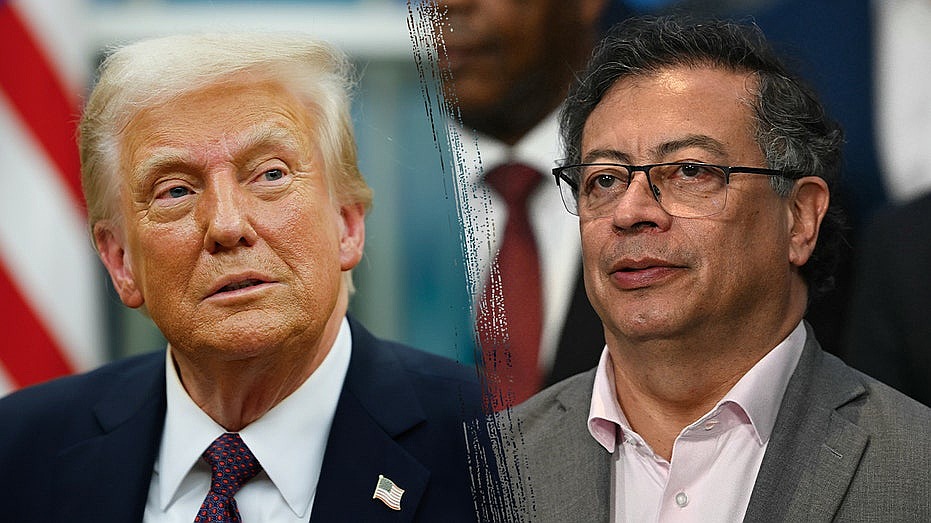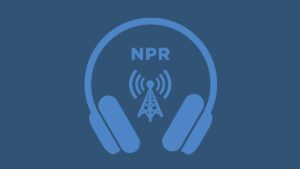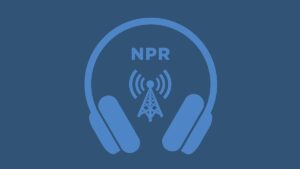US sanctions Colombian president and family over drug trafficking allegations
In a dramatic escalation of tensions between the United States and Colombia, the Treasury Department under the Biden administration has sanctioned Colombian President Gustavo Francisco Petro, along with his family and a key associate. The sanctions, announced on Friday, stem from allegations that Petro and his inner circle are deeply involved in the global illicit drug trade, particularly narcotics trafficking and narcoterrorism. This action aligns with an executive order aimed at combating drug-related corruption and violence, and places Petro alongside other controversial leaders such as Russian President Vladimir Putin and Venezuelan President Nicolás Maduro, who are also under U.S. sanctions.
The U.S. Treasury claims that since Petro took office in 2022, cocaine production in Colombia has surged to unprecedented levels, flooding the U.S. market and exacerbating the ongoing opioid crisis. Treasury Secretary Scott Bessent stated that Petro has allowed drug cartels to thrive, contributing significantly to violence and instability in Colombia. The sanctions specifically accuse Petro of providing benefits to narco-terrorist organizations through his “total peace” policy, which purportedly aims to negotiate with armed groups but has instead led to record highs in coca cultivation. In a pointed response, Petro characterized the sanctions as a “complete paradox,” asserting that his efforts to combat drug trafficking have been misrepresented and that he will continue to fight against the drug trade without backing down.
The implications of these sanctions are profound, as they freeze any assets owned by the sanctioned individuals within U.S. jurisdiction and prohibit American citizens from engaging in transactions with them. The sanctions also reflect a broader strategy by the U.S. to hold foreign leaders accountable for their roles in drug trafficking, particularly as Colombia remains the world’s largest producer of cocaine, a significant threat to U.S. public health and safety. With Petro’s son facing legal issues related to money laundering and illicit enrichment, the situation highlights the complex interplay of politics, drug trafficking, and international relations. The U.S. has reiterated its commitment to support Colombian security forces in their fight against drug trafficking while holding Petro and his administration accountable for what they describe as a failure to control the drug trade effectively.
Related articles:
– Link 1
– Link 2
The Trump administration’s Treasury Department on Friday sanctioned Colombian President
Gustavo Francisco Petro
, along with his wife, son and a close associate, accusing the group of being involved in the global illicit drug trade.
The action was taken under a Biden administration executive order targeting foreigners involved in the drug trade.
Petro joins a number of other world leaders under sanction by the Treasury, including Russian President Vladimir Putin, Venezuelan president Nicolás Maduro and former president of Syria Bashar al-Assad.
TRUMP DOUBLES DOWN ON COLOMBIA CRACKDOWN, CALLS PETRO ‘LUNATIC,’ VOWS TO END ALL US PAYMENTS OVER DRUGS
“Since
President Gustavo Petro
came to power, cocaine production in Colombia has exploded to the highest rate in decades, flooding the United States and poisoning Americans,” Treasury Secretary
Scott Bessent
wrote in a news release. “President Petro has allowed drug cartels to flourish and refused to stop this activity.”
Petro responded to the announcement on X, calling the sanction “a complete paradox.”
“Indeed, Bernie Moreno’s threat has come true; my children, my wife, and I have been added to the OFAC list,” Petro wrote in a post. “My lawyer in my defense will be Dany Kovalik from the USA. Fighting drug trafficking for decades and effectively has brought me this measure from the government of the society we helped so much to curb their cocaine consumption. A complete paradox, but not a step back and never on our knees.”
The Treasury accused Petro, his wife Veronica, eldest son Nicolás, and Minister of Interior Armando Benedetti of being involved in narcotics trafficking and narcoterrorism, which it said is continuing to fuel violence, corruption and instability in Colombia, while also “posing significant challenges to regional and international security.”
“Colombia remains the world’s top producer and exporter of cocaine,” officials wrote in a statement. “Cocaine from Colombia is often purchased by Mexican cartels, who then smuggle it into the United States via the southern border. It is a scheduled substance that is a significant drug threat to the United States, despite Gustavo Petro’s recent, flippant comparison of the use of the drug to whiskey.”
Petro, a former guerrilla member, was elected to the Colombian presidency in 2022.
The department accused him of providing
narco-terrorist organizations
with benefits under the auspices of his “total peace” plan, among other policies, which officials said have led to record highs in coca cultivation and cocaine production.
The Treasury also alleged Petro has allied himself with Maduro, who is also under U.S. sanction, and the Cartel de Los Soles.
WITKOFF SCRAMBLES FOR PEACE DEAL WITH RUSSIA AS SANCTIONS LOOM TARGETING INDIA, CHINA
“Gustavo Petro’s erratic behavior has also driven Colombia further apart from its partners in additional ways,” officials wrote. “In 2024, he shared confidential information obtained via secure anti-money laundering communication channels, threatening the integrity of the international financial system and leading to the suspension of Colombia’s Financial Intelligence Unit from The Egmont Group.”
Petro’s son and political heir, Nicolás, was charged in 2023 with
money laundering and illicit enrichment
over allegations that he funneled money received from drug traffickers into his father’s “total peace” efforts and election campaign.
He later admitted to receiving dirty money from a person formerly involved in narcotics trafficking and son of a contractor on trial for financing paramilitaries, according to officials.
President
Donald Trump
determined Columbia was a major drug transit or major illicit drug producing country on Sept. 15, finding it is “failing demonstrably” to uphold its drug control responsibilities.
TRUMP AND PUTIN’S RELATIONSHIP TURNS SOUR AS PRESIDENT PUSHES FOR RESOLUTION WITH UKRAINE
Property and assets belonging to those sanctioned, that are in the U.S. or controlled by people in the U.S., are
frozen and must be reported
to OFAC. Entities owned 50% or more by those sanctioned are also frozen, and U.S. citizens are generally prohibited from related transactions.
Violations can result in civil or criminal penalties, with OFAC able to impose civil penalties on a strict liability basis.
Principal deputy spokesperson Tommy Pigott added Secretary of State
Marco Rubio
will not certify Colombia under the criteria of the Department of State, Foreign Operations, and Related Programs Appropriations Act, 2024, as carried forward by the Full-Year Continuing Appropriations Act, 2025.
“The United States will not turn a blind eye to Petro’s appeasement and emboldening of narco-terrorists,” Pigott wrote in a statement. “We are committed to bringing terrorists and drug traffickers to justice and preventing deadly illegal drugs from entering our country. There must be no impunity for drug traffickers or acts of terrorism or violence by criminal armed groups.”
“We remain steadfast in our support for
Colombian security forces
, its justice sector, and departmental and municipal officials, and we will continue to partner with them in our joint efforts to combat drug trafficking,” he added. “Today’s decision is not a reflection on these institutions but rather the failures and incompetence of Gustavo Petro and his inner circle.”
Sen. Bernie Moreno, R-Ohio, reacted to the announcement on X, saying “FAFO,” an acronym which stands for f— around and find out.
Eric
Eric is a seasoned journalist covering US Politics news.



